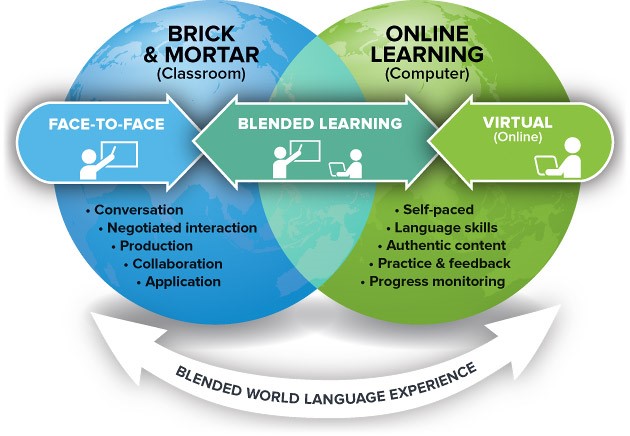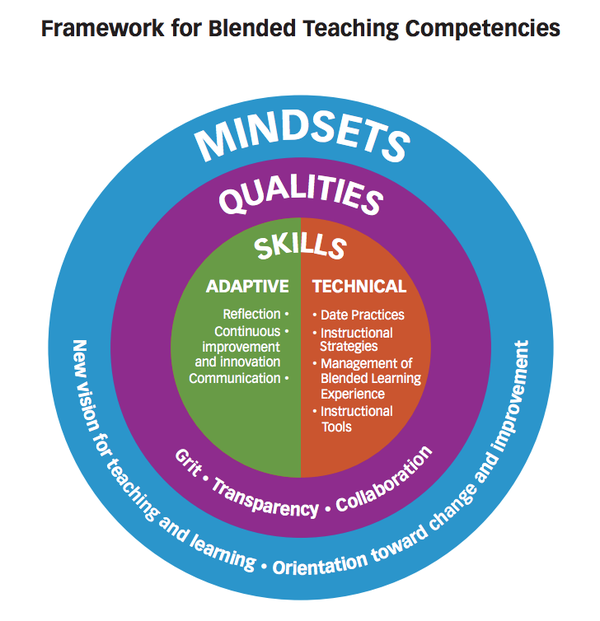 Contributed by: Ebba Ossiannilsson, Vice President of the Swedish Association for Distance Education, Vice President of the Swedish Association for e-competence, ICDE OER Advocacy Committee, ICDE Focal Points of Quality, ICDE_ON_BOLDIC, EDEN EC, EDEN Fellow, EDEN SIG on TEL Quality Enhancement, Open Education Europa Fellow and Ambassador.
Contributed by: Ebba Ossiannilsson, Vice President of the Swedish Association for Distance Education, Vice President of the Swedish Association for e-competence, ICDE OER Advocacy Committee, ICDE Focal Points of Quality, ICDE_ON_BOLDIC, EDEN EC, EDEN Fellow, EDEN SIG on TEL Quality Enhancement, Open Education Europa Fellow and Ambassador.
During the 27TH ICDE World Conference, 16-19 October 2017, Toronto, Canada, ICDE will be releasing the third installment of its ICDE Insight Papers Series.
Ebba Ossiannilsson, author of the ICDE Insight Paper provides an overview of what readers can expect from this publication.
This blogpost on blended learning can be followed my the ICDE Blog as well
This ICDE Insight Paper on blended learning, state of the nation, targets a broad audience, especially practitioners, policy makers and leaders. It provides awareness, inspiration, insights, and dialogues into blended learning and the current debates. The report explains that blended learning is based on a pedagogical approach rather than on technology.
Blended learning involves people as learners, teachers, administrators, technicians, leaders, and managers with a variety of aspirations and ambitions. Clearly, there is a renewed focus on quality, and the blended learning approach is worthy of consideration.
What is Blended Learning?
Numerous definitions have emerged during the last 20 years, demonstrating the wide-ranging nature of the concept, its socio-cultural influences, and its flexible interpretations. Blended learning is part of the innovative transformation of education in the 21st century.
Blended learning embraces personal quality learning. This widely recognized and personalizable method engages, facilitates, and supports learning. UNESCO and the Commonwealth of Learning emphasize this approach, as it makes learning more flexible and convenient. This will help students be part of a global digital society.
The blended learning model requires changes in the roles of both teachers and learners. These changes are accompanied by shifts in ownership and empowerment, where learners become prosumers and orchestrate their own learning regarding time, place, setting, path, and pace. A common model is pictured below.

To adapt to current trends and contexts, blended learning models must be flexible, and agile. One framework is by the International Association for K-12 Online Learning (iNOCAL).The below graphic describes how engaging, efficient, and effective learning starts with specific mindsets.

A set of recommendations for blended learning are given in this ICDE Insight paper:
- Success is based on people.
- Promote the ownership of learning.
- Ensure that strategies, funding, and visions are understandable to all.
- Implement a culture of smart learning, open pedagogy, and mobile learning.
- Enable ubiquitous learning, time (anytime), space (anywhere), path, mode, and access.
- Apply the UNESCO Bangkok and the Education University of Hong Kong recommendations.
- Apply the INOCOL framework of blended learning.8. Support and facilitate capacity building, incentives, and recognition in all staff.
- Cultivate a culture of quality and an ecology of blended learning.
- Encompass digitization throughout the curricula and assessments, including finding, evaluating, creating, disseminating, and communicating.
- Ensure that blended learning concerns all stakeholders at micro, meso, and macro levels.
- Ensure that leadership and management at all levels support and facilitate the culture and quality of blended learning.
- Conduct research that focuses on blended learning per se not only in comparison with other teaching and learning models.
Where you come in?
Please discuss the possibilities and ask any questions necessary to improve your understanding. I look forward to your comments and involvement in this movement.
Ebba Ossiannilsson
Higher education is facing a range of major challenges during the twenty-first century. Personalised, flexible and open learning are considered among the driving forces, thus, issues of quality must be urgently addressed. This qualitative, multiple-case-study research with single and cross-case analysis. Just try this if you need more info.
ReplyDeleteLearning from online resources can be so easy. Such platforms are so convenient for the students so here are some of them https://www.personalstatementwriter.com/best-500-word-personal-statement-sample-ever/ which is offering best services.
ReplyDeleteIn all educational institute, such kind of seminars and conference should be held. This kind of conference widely recognized and personalizable method engages, facilitates, and supports learning and aware us to know the importance of education. We can get https://www.waiverletter.com/10-tips-for-your-gmat-waiver-mba/ which help us in MBA.
ReplyDeleteThank you for providing these tips. Sometimes reminders are required to know what to do in life. Your tips would definitely help me to lead recommended you read a a better life.
ReplyDelete
ReplyDeleteBlended learning is the system in which students learned through electronic and online sites. It would be face to face learning system. Just dig this you'll learn here how to summarize the article.